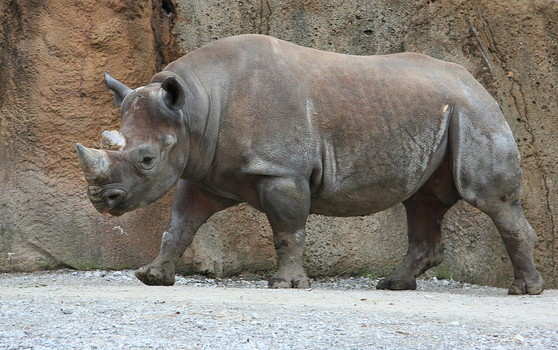
Poaching is a major issue in many parts of the world, but nowhere more than in many African nations. Animals like elephants and rhinos are killed by the hundreds and even thousands, driving their numbers to near extinction levels. In fact, several species have been wiped out completely, never to be seen again. Some countries are taking positive steps to try to save the animals, including destroying the ivory or setting up refuges. Botswana is one that is trying to protect the animals by taking them in from across the continent.
The first ten rhinos were released in northern Botswana, according to a National Geographic report on May 7. The animals were quarantined and traveled for some six weeks before arriving at their destination, the Khama Rhino Sanctuary, where they can roam free, safe from poachers. They are part of a group of 100 of the horned critters, who are being killed just for their horns.
Rhino poaching has led to the reduction of the population from some 300,000 on the continent just over a hundred years ago tounder 30,000 today. That’s a more than 90 percent reduction in just over a century, and that’s after a rebound. The black rhino’s numbers were as low as 2,300 at one point in the 1990s, and they have risen back up to more than 5,000 today. For reference, there were more than 63,000 just 45 years ago, in 1970.
It’s efforts like those being taken by Botswana Rhino sanctuaries that have allowed the animals to even survive. Had these efforts not begun when they did, it’s likely we’d be having a much different conversation about them, and it would not be an optimistic one. However, poaching is still a major issue, with some estimates putting the ivory trade at nearly $200 million annually. Much of the ivory goes to Asian countries like China, where it is used as a luxury good or even as medicine (although though it has no medicinal value whatsoever).
Even with the number having risen over the last two decades, another decline could soon be on the horizon. More rhinos were killed in the wild last year than were born, and one rhino is killed every seven and a half hours on average.
FRENCH VERSION


